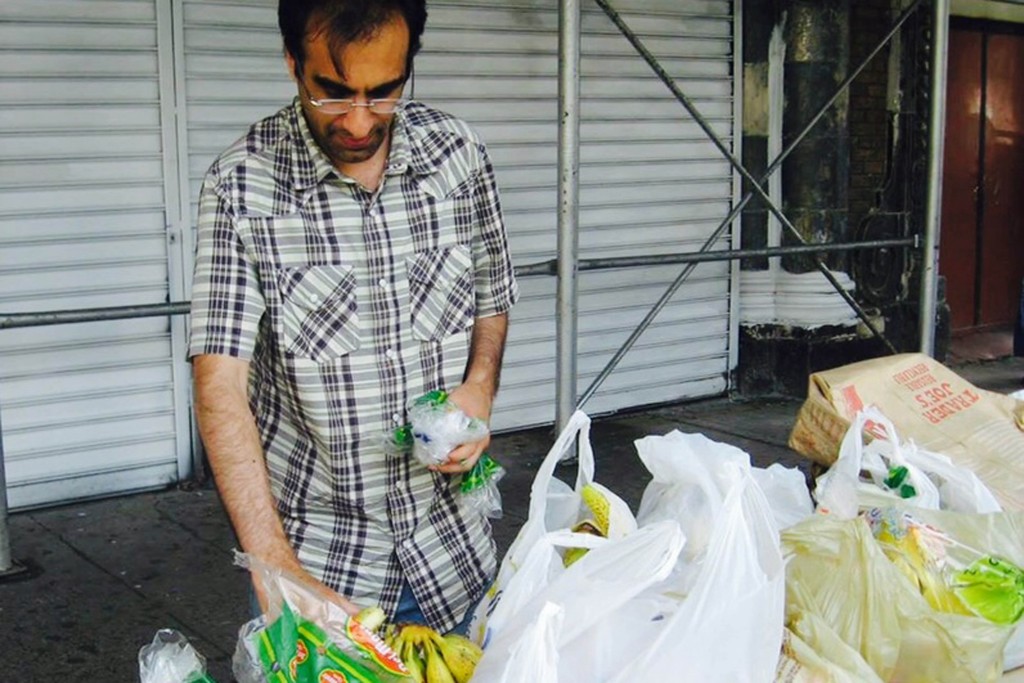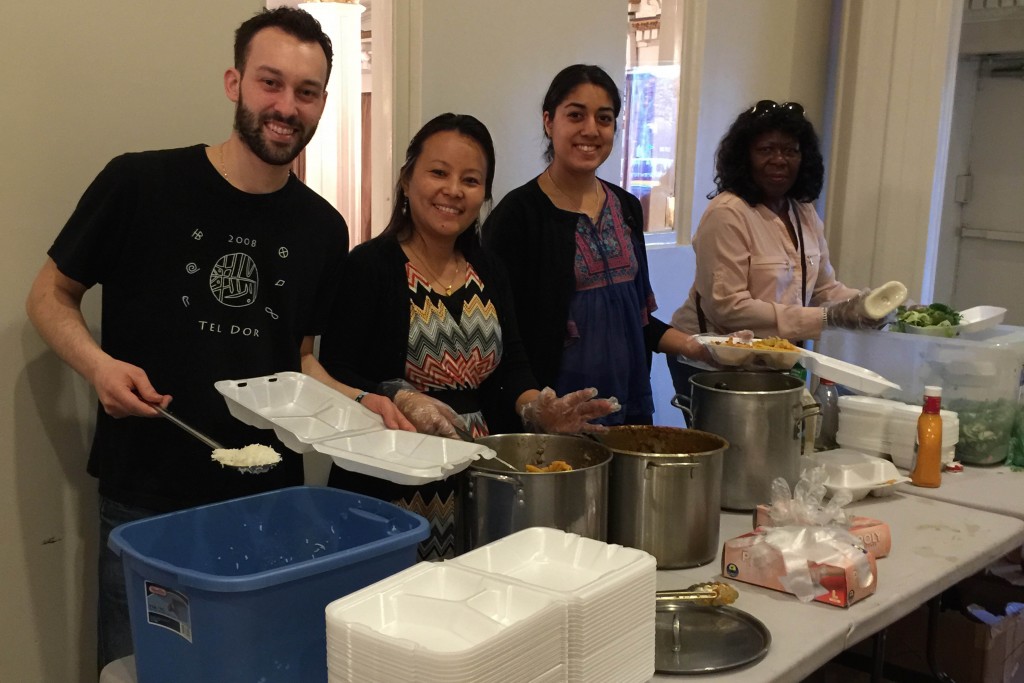Soup Kitchens
Emergency Food and Healthy Harlem
In the 1980s, increasing unemployment, decreased job security, and inadequate social spending brought on by the recession gave rise to the growth of emergency food programs, such as soup kitchens, food pantries, and food banks. According to the Department of Social Services, before 1980 in New York City there were thirty emergency food providers; by 1997, however, that number had increased to nearly a thousand. In response to an ever-growing need for access to food and an ongoing lack of public assistance, Healthy Harlem (HH) emerged as an emergency food assistance program, colloquially referred to as a soup kitchen.
Nearly every Wednesday for the past fifteen years, a small dedicated team of volunteers lovingly prepare, cook, and serve meals for the HH food service project, which is located in Harlem on the corner of 116th Street and Adam Clayton Powell Boulevard. Their mission is to promote greater socioeconomic equality through hunger alleviation and to inspire people to take ownership of their lives.
HH is a faith-based food service project that operates in affiliation with and is supported by the Sri Sathya Sai Baba Center of Manhattan. The Sai Center is a focal point for individuals who are striving to lead disciplined spiritual lives and who want to devote a significant portion of their spare time and energy each week to performing acts of selfless service to the needy and the distressed. Although many HH volunteers associate themselves with the Sai Center, the feeding project is open to all individuals willing to contribute a helping hand to serve the hungry.
On the Ground
Healthy Harlem Service Trailer, https://www.youtube.com/watch?v=pLFlElKt_fo, March 27, 2015, video by Sri Sathya Sai Baba Center of Manhattan.
HH food service begins promptly at six in the evening; however, volunteers prepare long before then. Preparation includes the purchasing of food items (usually with money out of the volunteers’ own pockets), cooking, and the transportation of prepared meals. When volunteers arrive on-site in Harlem shortly before service, there is usually a line of people waiting to eat. The crew quickly unloads the food from their vehicles and places it in organized rows on several folding tables borrowed from a nearby church. Over the next forty-five minutes, the team scrambles to serve food to a group that ranges from 75 to 200 people. A typical meal includes a generous serving of rice, beans, pasta, cabbage, salad, and fruit. For most people served at HH, this is the healthiest meal they eat all week.
Like other soup kitchens, HH caters to individuals going through life struggles caused by job loss, homelessness, or financial instability. Somewhere along the line their support system—friend, family, or community member—crumbled. HH understands these issues and tackles them head on with their unique food philosophy.
Love in Food
Hemant Wadhwani, Manager of Healthy Harlem, Harlem, NY, March 21, 2014, photograph courtesy of Hindus Against Hunger.
Some of the major criticisms about soup kitchens—their nutritional inadequacy, inefficiency, instability, insufficient amount of food and indignity—are issues that HH actively works to overcome. For example, unlike many other food distribution programs in New York City, all of the meals served at HH are homemade and vegetarian. Also, HH is a small operation and is therefore not susceptible to the types of costly production and transportation inefficiencies that plague larger soup kitchens. Furthermore, because of its small size, HH can remain a stable force in the community that needs a core group of only four or five volunteers. The money HH saves by being cost conscious and labor efficient goes toward purchasing more food supplies.
Hemant Wadhwani, who has managed HH since it began in 2000, believes that serving a healthy dose of nutritious food can act as a source of empowerment and help build self-esteem for impoverished individuals who would otherwise be eating hand-me-downs or unhealthy surplus from fast-food restaurants. In addition, Wadhwani says: “It’s very important for me to do the service because I see the divinity in all people and when we come here, all barriers break down.”
All in the Family
Healthy Harlem Service, Harlem, NY, March 11, 2015, photograph by Amrit Thappa.
More important than the food itself is the family mentality that volunteers share with one another and with the people they serve, which is reflected in the joyful nature with which they work. This mentality derives from their faith in God and their belief in the unconditional equality of all people. HH is place where walls of fear are broken down and replaced by bridges of understanding.
In his speech accepting the Nobel Peace Prize in 1964, Martin Luther King Jr. said: “I have the audacity to believe that peoples everywhere can have three meals a day for their bodies, education and culture for their minds and dignity, equality and freedom for their spirits.” Although his audacious statement has yet to become a reality, emergency food projects such as HH and their committed volunteers continue working diligently to make his dream of hunger alleviation come true. – A.G.

